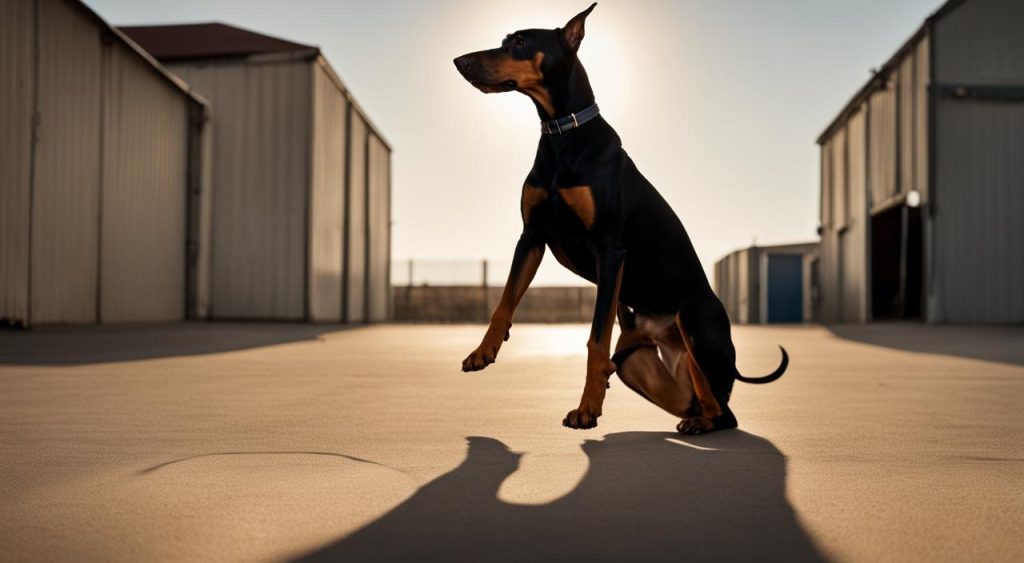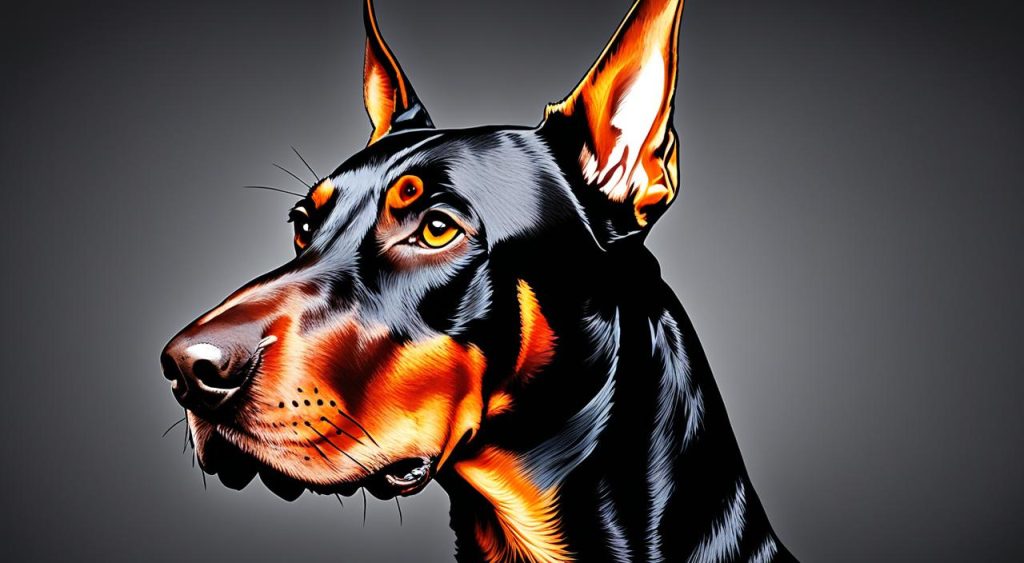Dobermans are often misunderstood when it comes to their behavior and temperament. There is a common belief that these loyal and intelligent dogs can suddenly turn on their owners. However, this notion is a myth that does not align with the true nature of Dobermans.
Dobermans are a breed specifically created for personal protection, and their loyalty is unmatched. They exhibit traits such as high intelligence, people-orientation, and deep love for their families. These characteristics contradict the belief that Dobermans are prone to aggression towards their owners.
Despite their natural protective instincts, Dobermans are not inherently aggressive. They do not turn on their owners without provocation. Proper training, love, and socialization play a crucial role in nurturing their gentle and loyal nature.
Key Takeaways:
- Dobermans are not known for sudden acts of aggression towards their owners.
- They possess traits such as high intelligence, loyalty, and being people-oriented.
- Myths about their brain size and skull size causing aggression have no scientific evidence.
- Canine Compulsive Disorder and Hypothyroidism can affect Doberman behavior, but they can be managed with proper treatment.
- Proper training, love, and socialization are key to preventing aggression in Dobermans and maintaining a strong owner-dog relationship.
Doberman Dog Bite Statistics
When assessing the prevalence of dog bite incidents, it’s essential to consider specific breed statistics. In the case of Dobermans, the data reveals an important perspective.
According to a comprehensive study on dog bite fatalities reported to the CDC, Dobermans accounted for only 1.4% of the total deaths resulting from dog bites between 2005 and 2017. This study ranked Dobermans as the 11th most responsible breed for these fatalities. Other breeds, including Pit Bulls, Rottweilers, and Labradors, exceeded Dobermans in terms of dog bite fatalities.
“Dobermans accounted for only 1.4% of total dog bite deaths.”
Additionally, a report by Max Sparwasser Law Firm listed Dobermans as the 18th most responsible breed for causing serious injuries. These figures indicate that Dobermans are not significantly more aggressive compared to other breeds.
“Dobermans ranked 18th in breeds causing serious injuries.”
Examining these Doberman dog bite statistics reveals that there is no credible evidence to suggest that Dobermans are excessively prone to aggression. It is important to approach these situations with accurate information and not contribute to unfounded stereotypes.
Understanding Doberman Behavior
Dobermans have a natural protective instinct, but they are not inherently vicious. They are highly intelligent dogs and are easily trainable. They are people-oriented, loving, and loyal to their families. Dobermans are known to be with their owners at all times, often referred to as “velcro dogs.”
While owning a Doberman comes with great responsibility and requires proper training and socialization, they can be affectionate and tolerant towards people if well-socialized. Dobermans are not mean or dangerous dogs if they are treated properly.
Conclusion
In conclusion, Dobermans are a loyal, intelligent, and loving breed, contrary to the myth that they turn on their owners without provocation. With proper raising and training, Dobermans exhibit excellent behavior and are not prone to sudden acts of aggression towards their owners. It is crucial for owners to understand that a dog’s behavior is shaped by their environment, socialization, and training.
Owners must prioritize responsible ownership to prevent any dog, including Dobermans, from becoming aggressive. This includes providing proper training, socialization, and a loving environment. By debunking the myths surrounding Dobermans and educating people about their true nature, we can dispel unfair stereotypes and promote responsible dog ownership.
Remember, Dobermans are a breed with natural protective instincts, and it is essential to channel their loyalty and intelligence through positive reinforcement training. By fostering a strong bond with your Doberman and providing them with the appropriate guidance, you will have a loyal and well-behaved companion for life.





